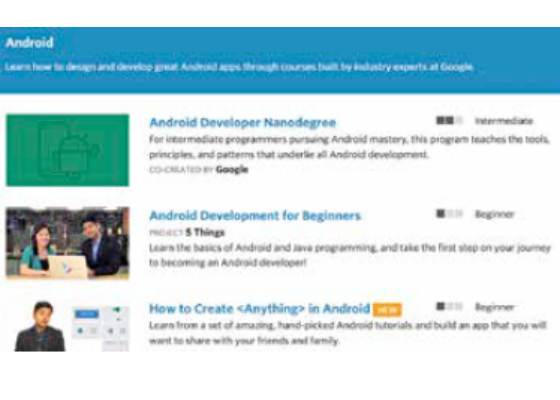Administrations globally are experimenting how governance and citizen service delivery can be improved using distributed ledger technology
Distributed Ledgering Technology (DLT) refers to any system providing an asset database or a ledger that enables a seamless and distributed participation of cross-organization entities. The system ensures that the local copies of the ledger maintained by the entities are identical and that any changes are guaranteed to reflect across all copies in a time bound manner. The security and reliability of the data stored in the ledger is ensured cryptographically using keys and signatures. Blockchain refers to a way of implementing DLT in which transactions are entered in the ledger based on a consensus of relevant parties and ensures that the recording of the transactions is immutable. Further, blockchain supports evolution of the ledger through “smart contracts” that enables automatic execution of transactions based on pre-specified rules on the global state of the ledger.
Blockchain has the potential to disrupt outdated, inefficient, error-prone, and high-risk business practices through a trusted and secure orchestration of cross-organization B2B processes without requiring a central authority. In fact, it is hailed as the technology which will do to B2B commerce what Internet did to the B2C commerce. Many business ecosystems (large and small) and technology providers (technology companies to nimble startups) have come together and are carrying out many exciting in-market experimentations, focusing on both technological benefits as well as business model innovations.
Blockchain can transform the way the government services and benefits are delivered to the citizens, eliminate pilferages in the delivery of such services where this is a significant problem, eliminate leakages in tax collection, delivery and management of documents (like passport, social identify cards, EHRs), and maintenance of key registries (like land and vehicle). Another disruptive role of the technology in the public sector space would be to implement required controls in supply chains of essential commodities like food and medicine.
Signs of Engagement
Dubai is a recent example for high-profile adoption of the blockchain technology for governance. A long-term roadmap, titled The Dubai Blockchain Strategy 2020 is the outcome of a collaboration between Smart Dubai Office and Dubai Future Foundation with IBM as the Lead Strategic Partner and ConsenSys as the Blockchain City Advisor. It envisages bringing 42 city governance entities on an open and trusted digital platform for all city transactions and issuance of all documents required for business and governance purposes.
In the UK, a blockchain report led by the government’s chief scientific advisor, Sir Mark Walport, states “distributed ledger technology provides the framework for government to reduce fraud, corruption, error and the cost of paper-intensive processes. It has the potential to redefine the relationship between government and the citizen in terms of data sharing, transparency and trust”.
Regulators in the financial space have been actively engaging with the blockchain namely, the Financial Conduct Authority (FCA) in the UK, the US Commodity Futures Trading Commission (CFTC), Monitory Authority of Singapore (MAS), Australian Securities and Investments Commission (ASIC), Korean Financial Services Commission (KFSC), and Institute for Development and Research in Banking Technology (IDRBT). It is very encouraging that each of the regulators, despite their concerns about crypto-currencies, have adopted a “do no-harm” attitude towards the technology. They have released reports that seek to address the ways in which blockchain can help financial firms to innovate and bring efficiency to their processes.
Active Participation of Regulators
FCA in the UK became the first regulator worldwide to make available a sandbox environment to allow firms to experiment new products and services that go beyond traditional regulatory parameters and ensure that they protect investor’s interests when launched as regular offerings. Many blockchain startups have enrolled on the sandbox for services ranging from cross-border money transfer, mobile money, payment services, management of private equities, and identity services.
Similarly, the Canadian Securities Administrators (CSA) has launched a sandbox environment which is relatively regulatory-free and enables participation of firms as well as local regulatory bodies across the country. Paycase, a startup in international remittance is one of the early participants in the program.
Blockchain can also play a pivotal role in enabling cross-border regulatory cooperation. FCA has taken the lead in creating such cooperation with ASIC, KFSC, and MIS. The initial purpose of this is to use blockchain technology to implement a referral mechanism for innovative companies wanting to enter each other’s market.
Increasing the compliance of international trade and simplifying it’s financing process while reducing the risks for participating banks is another area of concern for regulators. Infocomm Development Authority in Singapore took a lead in this space and collaborated with IBM, HSBC, and Bank of America Merril Lynch to conduct a successful PoC of a blockchain-assisted Trade Finance platform. In Singapore, MAS has created a sandbox environment for fintech companies to experiment with financial service innovations.
Engagement of Governments
The Government of Estonia has launched an ambitious citizen services initiative based on blockchain technology. The citizens can view the information about them held in government records, verify or correct them, and determine who gets to access it for what purposes. This extends to services, such as secure medical records registry and e-voting during elections. There is even an e-residency service available for anyone in the world by which they can register an Estonian company and get access to e-banking services.
Management of land records is one of the most error-prone and disputes-heavy area of public sector. This includes tracking the history of land surveys, tracking the changes in the notifications of the purposes for which a plot of land can be used, and finally tracking the ownership of land. Republic of Georgia is currently experimenting with the use of blockchain technology for land record management in partnership with Bitfury. Related, variants are being pursued in Ghana and Sweden as well.
Avoiding leakages and frauds in delivery of government services and benefits and ensuring that they reach its intended beneficiaries is a very important area that can be addressed using blockchain. An example in this space is the initiative by the Department of Work and Pensions in the UK that has launched a mobile application service which citizens of the UK can use to claim and spend their benefits. Currently, it is being used to disburse government grants and student loans but can easily be extended for other benefits, such as healthcare, safety, and food.
Regulators can help India realize its blockchain potential
In India, most banks and financial services organizations have a high level of interest in using the blockchain technology for in-market innovation. Many initial experiments for specific use-cases are already underway. This will get a great impetus if IDRBT could set up a safe experimentation ground along the lines of the systems set up by FCA in the UK and CSA in Canada. This will accelerate the industry’s experimentation with the technology, make it safer, and checked for regulatory compliance.
Recently, Reserve Bank of India has issued licenses for setting up of Trade Receivables Discounting Systems (TReDS). This is a potential game changer in terms of financing options for MSMEs in India. TReDS exchanges are expected to bring MSMEs and banks on a common platform. It will provide visibility of the trade receivables of MSMEs to the participating banks and let them bid on the financing conditions. This gives MSMEs the flexibility of choosing from multiple options. In fact, multiple consortiums have been given licenses to operate such platforms. Issues, such as potential “double spend” of a trade receivable across different platforms, reliability of the trade receivable assets, securitization of the financed assets will all be critical for the success of the TReDS and are classic blockchain use-cases. RBI can enable speedy and reliable adoption of TReDS by addressing the above issues based on a blockchain solution.
Industry’s experiments will soon result in a large number of blockchain solutions built by different organizations on a diversity of platforms, protocols, and different variations of popular use-cases. The most critical factor in scaling and consolidating these solutions will be the emergence of relevant industry standards that enable interoperability of blockchain systems. The regulators world over will have to play a key enabling role in evolving the right industry standard and interoperability requirements so as to sustain innovation and a competitive marketplace.
India is moving to the new indirect taxation regime, i.e, a uniform Goods and Services Tax (GST) across the country. The roll out of the GST will result in a very different pattern of revenue generation for the states and is expected to keep track of the different components of the taxes, i.e, central, state, and inter-state components and transfer the due-revenues to the states. Implementing the GST system on blockchain technology with different states and governance bodies as the stakeholder nodes and a distributed ledger that provides instantaneous and single trusted version of the transactions to all the states will result in an error-free and conflict-free way of documentation and transfer of taxes between the central government and state governments.
Another serious issue faced by property buyers in India is the reliability of the land and property records. This results in cases of frauds being committed on property buyers. Even when there is no fraud, just the process of verifying the documents and going through the manual process of property registration makes the process costly, time-consuming, and prone to demands of bribes. The government can transform real estate segment in the country by implementing a blockchain-based land and property registration and smart contracts which can ease the process of property registration, transfer, and make them transparent. Linking the transactions to Aadhaar and PAN will help reduce Benami transactions and tax avoidance. The same idea can also implemented for the case of vehicle registration and this will make the process of inter-state move and sale of vehicles much simpler and cheaper than today. These are just some of the examples of many ways in which the government can make the citizen services simple, error and corruption free.
The author is a senior technical staff member and Manager – Cognitive, Blockchain Industry Solutions



